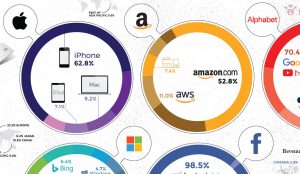
Sheraz (not his real name) was struggling to make ends meet after a sudden loss in income, growing medical debt, and a family to feed.
His wife lost her work as a beautician during the pandemic, and official pandemic assistance was difficult to come by.
As a result, he turned to “scalping,” a derogatory term for accumulating popular things and profitably reselling them at a higher price.
Concert tickets, limited-edition sneakers, and gaming consoles are among the products that are resold.
While public resale of football tickets is prohibited, almost everything else is lawful to purchase and resell.
Sheraz claims he only sells to friends and family to earn an extra £250 per month so he can “slowly eat away” at a £50,000 medical cost.
Scalping, on the other hand, is big business for the bulk of resellers, and they’re employing technology to help them out.
Bots on the internet
Because of a global shortage of semiconductor chips, which are essentially the brains of modern electronic gadgets, many electronics are in limited supply.
Automobiles, graphics cards, smartphones, and video gaming consoles are all affected.
Many players have found it extremely difficult to obtain a PlayStation 5, Sony’s next-generation gaming device.
Some customers used stolen information from major stores to estimate when new product will be available. Even those who stayed up until 3 a.m. browsing a retailer’s website in anticipation of a sale would find the stock sold out in minutes.
Bots were outperforming real shoppers.
The scalpers’ software can alert them when stock becomes available on any of their target websites. Bots can sometimes even purchase stuff for you.
Bots were snatching up PS5 consoles, only to resell them for twice the normal selling price of £450.
Getting to know the scalpers
Jack Bayliss, a former investment banker, is 24 years old and has been reselling for six years. His profit margins were massive; he would occasionally acquire Yeezy trainers for £150 and sell them for up to £1,000.
He quit his day job and founded Aftermarket Arbitrage, a reselling business that teaches people how to scalp. Mr Bayliss claims that since founding the company 18 months ago, he has produced £456,000 in revenue just from subscriptions.
Subscribers pay £30 per month and receive alerts when the bots discover that a rare item is in stock.
The Discord software notifies the 1,200 users, who may then swiftly go to the retailer’s website to purchase the item.
When asked if scalping was legal, Mr Bayliss told the BBC: “If there is an arbitrage opportunity in any industry, people will take advantage of it.”
“What’s the point of leaving the money on the table?”
Rather than being greedy, Mr Bayliss believes scalpers are merely looking for a quick buck. However, he stated that it was also to make a life for some.
To stay afloat, you must resell.
One scalper told the BBC how he used the money he earned via scalping to pay off a £30,000 gambling debt. Another claimed that resale had given him structure in his life and helped him cope with his alcoholism.
Because of their safety concerns, both guys declined to be interviewed on video.
After articles about Aftermarket Arbitrage were published, Mr Bayliss got numerous death threats.
Sheraz accepted to be videotaped despite this.
“For most people, the previous two years haven’t been easy,” he told the BBC.
“I was at the bottom of the barrel. I wouldn’t have a roof over my head if it weren’t for reselling.”
“I have a young family.” And when it comes to putting food on the table, you have to do what you have to do. So long as it isn’t illegal, which it isn’t.”
The bill Using bots to buy things is not prohibited in the United Kingdom, but it has gotten politicians’ attention.
The Scottish National Party’s Douglas Chapman, the MP for Dunfermline and West Fife, is leading the battle against resale.
He sponsored a measure in Parliament last year to prohibit the resale of electronic items purchased by automated bots.
He believes that if scalping were to be outlawed completely, consumers would profit.
“I believe it is skewing the market beyond what is sensible, and I believe we need to look at consumer protections,” he said.
“Entrepreneurs” should follow “the same standards as someone opening a High Street shop,” he said.
Sheraz accepts, despite the fact that it may damage his own income.
“Bots should be stopped, in my opinion.” Some folks will work on this 24 hours a day, 7 days a week, on up to 20 computers. He stated, “They are accumulating PlayStations, trainers, and toys.”
“It’s almost as if they’re manipulating the market.”
Mr Chapman’s measure was defeated in Parliament late last year, but he plans to reintroduce it very shortly.
Mr Bayliss, on the other hand, sees it as a matter of supply and demand.
“I wouldn’t consider not having a PS5 to be a source of sorrow.” There are folks who desire to do anything other than work nine to five. “They want a side gig,” he explained.
“If there’s a gap between supply and demand, someone is going to take advantage of it.”





